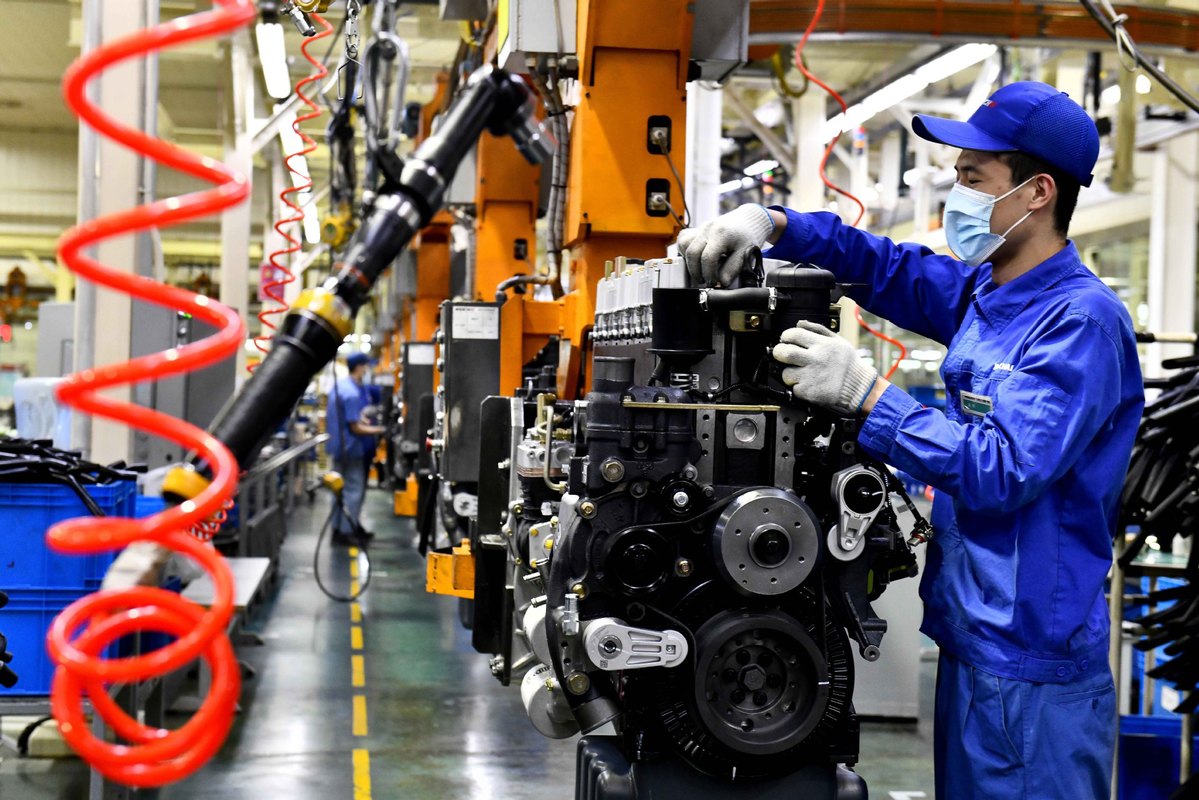Lvwo Technology collects cards all day long, providing a higher than the market competitiveness exchange rate and a reliable cooperation platform. Welcome all card merchants to negotiate and cooperate。
Keyword: moneylion 5104, stable 5392, business card 555740, 5396 onebank , 4985 chime, 4115 current , 4358netspend, 41088 Karma ....
Please identify official WeChat: lvwocfo only this wechat, the others are counterfeit, be careful to choose!

CPC leadership highlights 'stability' as priority for economic work next year
China can leverage more policies to maintain economic stability and prevent financial risks, amid the rise in coronavirus infections and global inflationary pressure, International Monetary Fund experts and former finance officials said.
The country's economic performance has been better than the rest of the world's, because it has more policy space to respond to the impact of the COVID-19 pandemic, including stronger fiscal and monetary measures, they said.
These policies will help China's economy recover better than other countries, Steven Barnett, senior representative of the IMF in China, said during a virtual seminar on Wednesday.
In the World Economic Outlook report published in October, IMF experts said new challenges may emerge due to the faster-than-expected monetary tightening of the US Federal Reserve and underestimations of inflationary pressure.
Inflationary pressure is mainly driven by firmer demand, commodity price pressures and supply chain disruptions, IMF economists said at the seminar.
Christoffer Koch, an economist from the IMF's research department, said central banks can generally get through transitory inflationary pressures and avoid tightening until there is more clarity on underlying price dynamics. However, they should be prepared to act quickly if the recovery is faster than expected or the risk of "rising inflation expectations becomes tangible", he said.
The Political Bureau of the Communist Party of China Central Committee, the Party's core leadership, held a meeting on Monday that highlighted "stability" as the priority for economic work next year.
The People's Bank of China, the central bank, announced on Monday a 50 basis point cut in the reserve requirement ratio for almost all financial institutions, effective Dec 15, to inject 1.2 trillion yuan ($189 billion) liquidity into financial markets.
More policies are expected to be released after the Central Economic Work Conference, and economists have predicted further easing measures to prevent a hard landing of the economy.
"We may see another 50 basis point RRR cut in the first half of 2022, but still view the likelihood of a policy rate cut as quite small, due to elevated production-price inflation and still rising consumer-price inflation," said Lu Ting, chief economist in China at Nomura Securities.
Wei Benhua, former deputy head of the State Administration of Foreign Exchange and former IMF executive director for China, said that China has adopted a monetary policy that is suitable for the nation's conditions. A prudent monetary policy will better support the real economy without the need for aggressive easing.
The central bank has also established a risk-warning mechanism after learning lessons from the global financial crisis, Wei said. China has taken note of the risks of an early retreat from quantitative easing measures adopted by central banks in some developed countries.
Guan Tao, global chief economist at BOC International and a former official at the State Administration of Foreign Exchange, said disruption to global supply chains caused by the pandemic could mean sustained inflationary pressure.
"Central banks might have underestimated the inflationary risk," Guan said, adding that the effects of aggressive monetary easing have been accumulating since the 2008 global financial crisis. If financial markets cannot absorb inflation, price rises in the real economy could lead to significant issues, he added.
IMF economist Koch said to avoid "taper tantrum" scenarios, which usually result in spillovers such as the shifting of capital flows and foreign exchange rate fluctuations, monetary authorities need to focus on forward guidance and communication. Policy normalization from advanced economies' central banks must also be taken into consideration by the authorities, Koch said.
Kristalina Georgieva, IMF managing director, said at the conclusion of the Sixth "1+6"Roundtable on Monday that China had "achieved a truly remarkable recovery, but its growth momentum has been slowing notably".
"As China is a vital engine for global growth, taking strong actions to support high-quality growth will help not only China, but the world," she said.

 大熊日志
大熊日志




